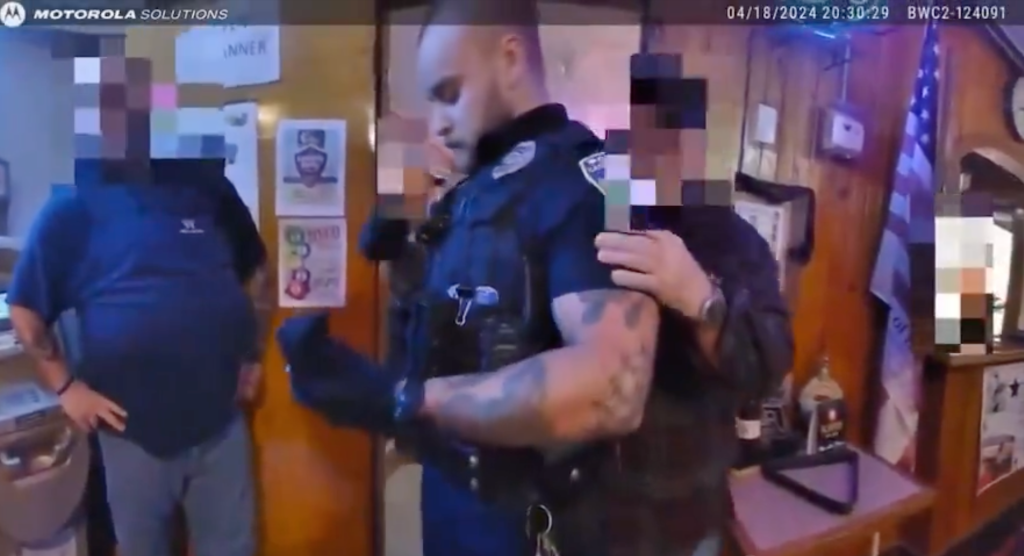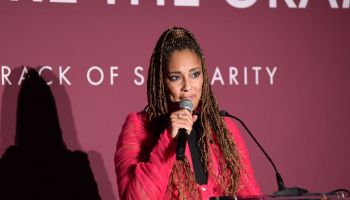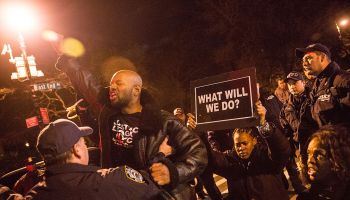It is tragic that it takes an incident like the murder of Jennifer Hudson’s mother, brother and nephew for people to focus on an issue like domestic violence in urban African-American communities. Domestic violence is often ignored by society and the mainstream media, although it is a serious issue for women of all races, backgrounds and religions in this country.
Domestic violence is responsible for more injuries to women then cancers, heart attacks and strokes; more injuries than rape, muggings and car accidents combined. Every year, four million women are killed in incidents of domestic violence. Black women are 35 percent more likely to be affected by domestic violence than white women.
But the statistics don’t tell the whole story. A lot of violence that stems from relationships issues is not categorized as domestic violence. How could you begin to count the number of fights between family members? How many murders do they lead to? How many fights over girlfriends, wives or childrens’ mothers result in assault, violence or death? These statistics are harder to find, but those in the African-American community are fully aware of the impact.
What is the cause of domestic violence in urban African-American communities? Is there anything people can do to stop it?
Oftentimes, domestic violence is passed from generation to generation. People who grow up in abusive households often see violence as the norm of how men treat women (or vice versa). Boys who grow up witnessing their fathers beat their mothers believe that is the way a man should treat a woman. Girls who grow up in the same situation believe it is acceptable for men to beat them.
Misogyny is another reason for domestic violence in urban African American communities. A lot of this comes from the general misogyny in America, but urban culture is partially to blame. Many people blame hip-hop for the objectification of Black women. By referring to women as bitches and hoes, rappers objectify and dehumanize Black women, which creates an environment in which women can be beaten, disrespected, raped and often murdered.
The glamorization of “pimp” culture in the Black community is symbolic of the misogyny that results in domestic violence. Pimps are praised for their ability to “keep a bitch in check,” by beating them with “pimp slaps.” Pimps are glorified, rather than being condemned as manipulative, violent misogynists who prey on women with low self esteem. In a lot of hip-hop culture, women are seen only as sexual objects and decorations for rappers. Rappers will refer to women as “my bitch” or “my ho.” Not only does this dehumanize women, but it also makes them the possession of their male partners. If a woman is a man’s possession rather than his partner, it may be easier for a man to give himself license to do anything he wishes with her. If a woman is a man’s bitch, what is to stop him from beating that woman as if she were his dog?
Often, women stay in abusive relationships because of low self-esteem, or lack of other options. Physical abuse almost always comes with psychological and verbal abuse. Through psychological and verbal abuse, women are told to believe that they have no value, or that they have no other options than their partner. Many times women will stay together with an abusive partner for the sake of her children, or the false stability of being in a relationship.
One other reason for domestic violence in the Black community is lack of anger management skills. Often, Black machismo is defined by one’s ability to be angry and violent, while those who aren’t quick to anger are defined as “soft.” This phenomenon, combined with misogyny, can lead to domestic abuse.
Domestic abuse has several warning signs. Verbal and psychological abuse often lead up to physical abuse. If you see a loved one being verbally or psychologically abused, you should intervene. Many times people believe they shouldn’t interfere with someone else’s relationship. If you believe someone you love is in an unhealthy relationship, you should talk to them. When people stay together in unhealthy relationships for the kids’ sake, often the kids wind up the worse for it. Growing up with domestic violence is worse for a child than not being raised by both parents.
Many African-Americans are hesitant to see a psychiatrist or counselor because they believe that would classify them as “crazy.” Counselors and psychiatrists listen and advise you on relationships and personal issues. If you do not feel comfortable talking to a psychiatrist, you can see a pastor or spiritual adviser.
Some African-Americans are hesitant to call law enforcement about domestic violence out of distrust for the police, or for fear of the stigma attached to “snitching.” It is not snitching to report a man beating a woman; it’s a moral obligation. Many times women are scared to call the police on their boyfriends or husbands. If you report domestic abuse, you might just be saving someone’s life. Call the police. Just don’t take things into your own hands.
The Black community as a whole and the hip-hop community in particular must condemn domestic violence and misogyny to avoid incidents like the Hudson family murders. We must take care of our mothers, sisters, aunts and friends to make sure they are not victims of verbal, psychological or physical abuse. To combat domestic abuse properly, we must realize that causes and symptoms of domestic abuse as well as ways to prevent them.
























